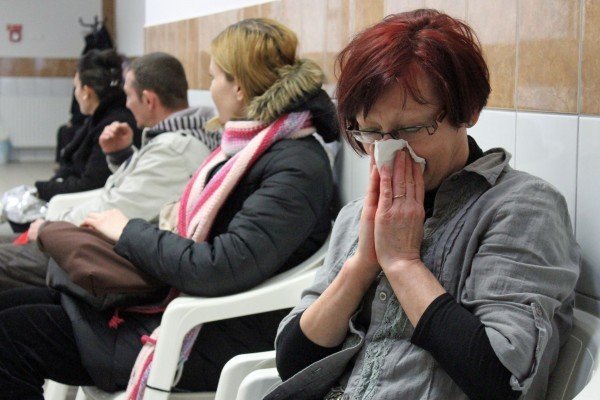It is now too late for even an urgent injection of cash by Health Secretary Jeremy Hunt to head off a looming NHS crisis over winter, according to Britain’s most senior health service providers.
Niall Dickson, the head of the NHS Confederation which represents all health service organisations, said the chronic staff shortages and structural problems in the NHS meant that with a flu epidemic feared to be on the way the provision of extra funds “at this stage is unlikely to solve the winter pressures.”
In a gloomy warning about the ability of the health and care systems to cope, Dickson said the sense of foreboding among top health care managers about the state of health care over the coming winter was greater this year than last year.
“It is becoming hard to overstate the perilous state of the health and care system in England,” he wrote in The Times. The NHS Confederation had just conducted a poll of all its members, he said, and 92% of healthcare leaders said they were “concerned“ about their ability to cope this winter, with 62% saying they were “extremely concerned.”
“Last year the NHS managed well in difficult circumstances,” he said. “Yet the impact on patients was evident. This year there is an even greater sense of foreboding.” The fears were heightened by concerns that Britain “may not escape a flu epidemic this year.”
Simon Stevens, the chief executive of NHS England, has highlighted the fact that hospitals in Australia and New Zealand have been hit by the worst flu season in years, warning there was a good chance the same H3 strain was heading towards Britain.
Hospital emergency departments are seen as “a litmus test,” for the rest of the system, according to Dickson. “If the health service cannot cope at its front door, what lies behind it will also be struggling,” he said.
Slow Responses
 There has not been enough investment in community health and social care, he added, and there were obvious problems with staff recruitment and retention. Figures released in July showed the number of nurses and midwives fell by 1,783 to 690,773 in the current financial year, as 20% more nurses left the profession than joined it.
There has not been enough investment in community health and social care, he added, and there were obvious problems with staff recruitment and retention. Figures released in July showed the number of nurses and midwives fell by 1,783 to 690,773 in the current financial year, as 20% more nurses left the profession than joined it.
Dickson warned that the ambulance service was also under increasing strain because “emergency admissions are continuing to rise – in the first quarter of this year there was a 25.9% jump in responses to life-threatening ambulance calls.”
The latest figures showed that in 2016-17 paramedics took more than an hour to reach 6,096 people requiring urgent treatment for conditions such as cardiac arrest that should be reached in less than eight minutes. That tally of urgent “red” calls that actually waited more than an hour had more than doubled from 2,746 a year earlier.
“A lot of work is underway not just to improve the flow of patients through hospitals but to relieve pressures elsewhere in the system,” Dickson said. “At the heart of this will be effective planning and good cooperation across the entire health and social care system but there is only so much that can be done.”
While it was too late for a cash injection to head off this winter’s problems Chancellor Philip Hammond must revisit pencilled-in figures for the next two years which, if left as they are, would guarantee more crises ahead and delays to badly needed reforms, Dickson said.
“For the longer term, the budget in November will be an opportunity for the Government to underline its support for the NHS and to make sure it is determined not to preside over a deteriorating service.”
by Bob Graham
The post NHS: Too Late to Stop Winter Flu Crisis appeared first on Felix Magazine.
NHS: Too Late to Stop Winter Flu Crisis posted first on http://www.felixmagazine.com/
No comments:
Post a Comment